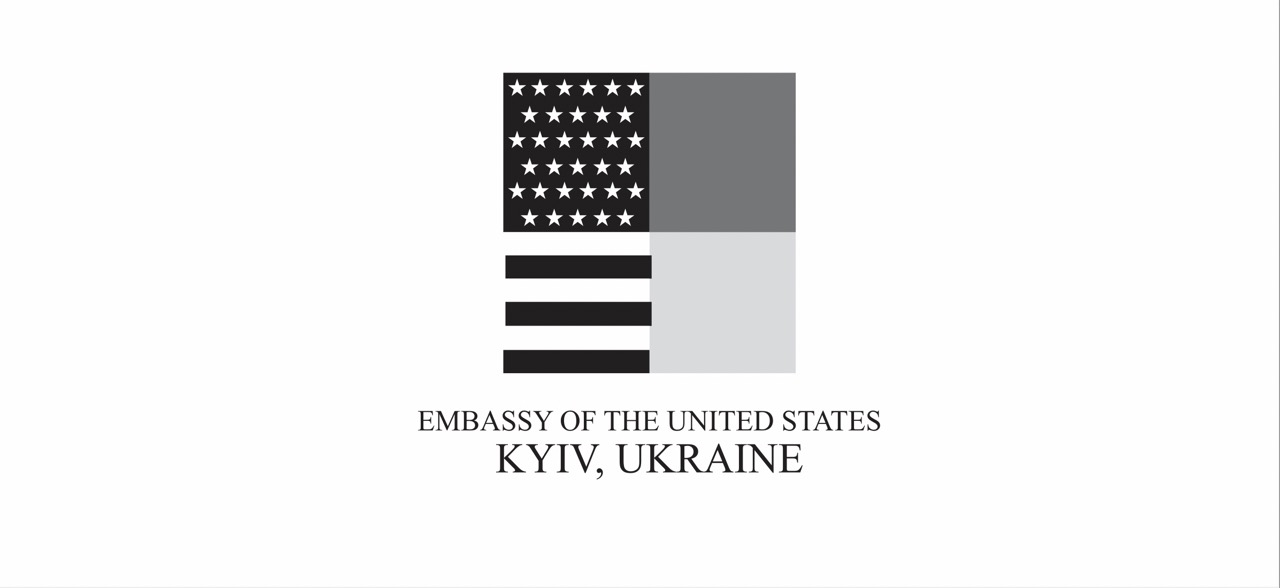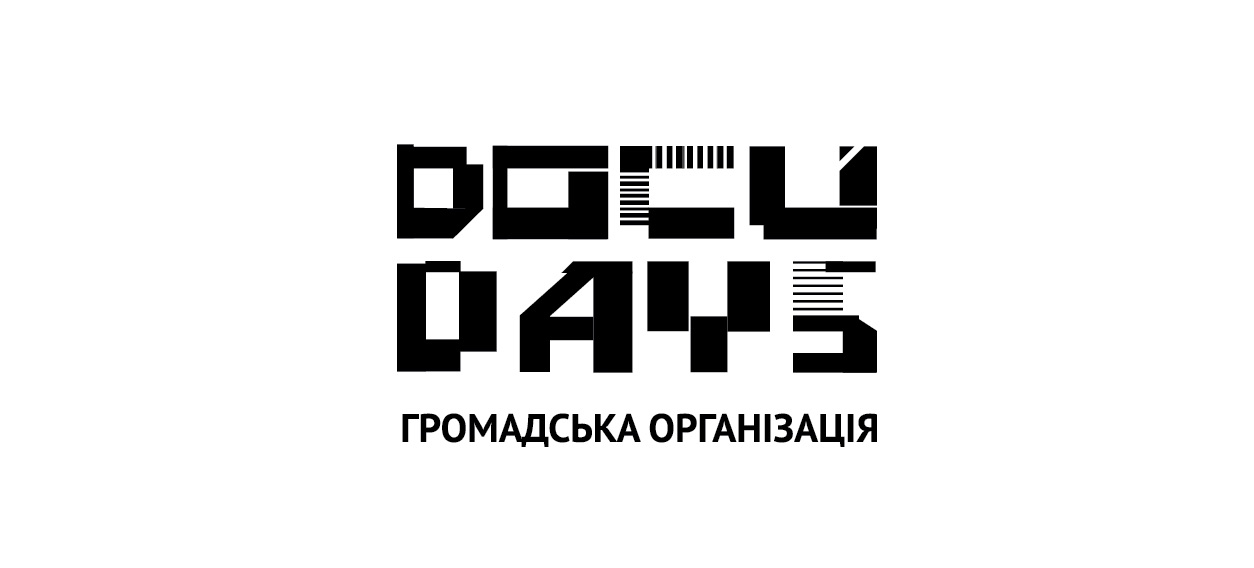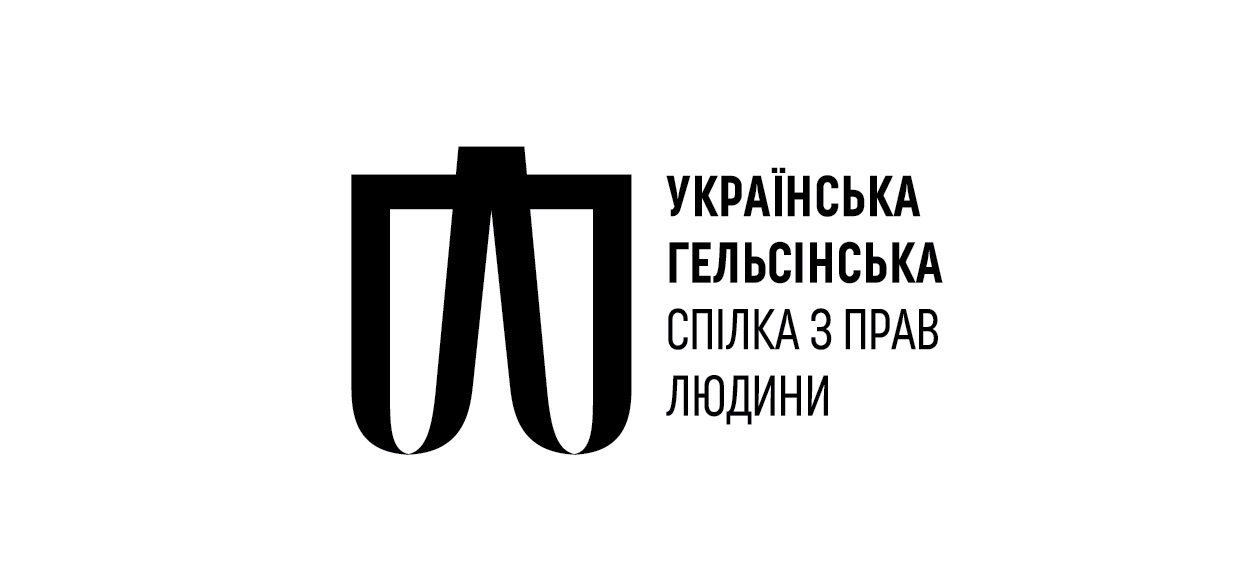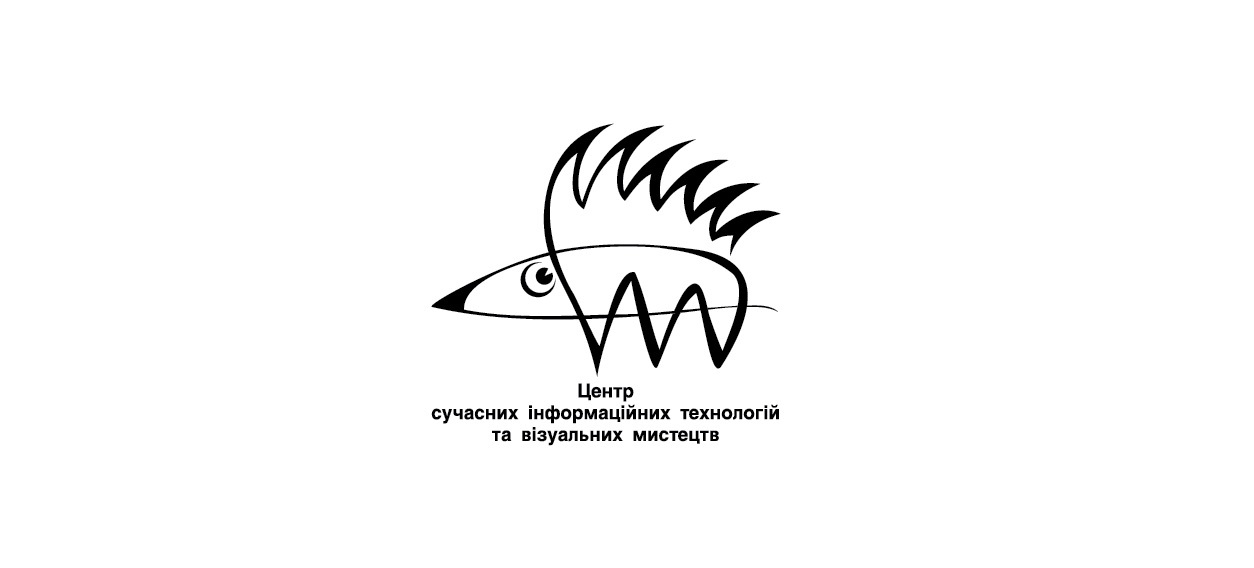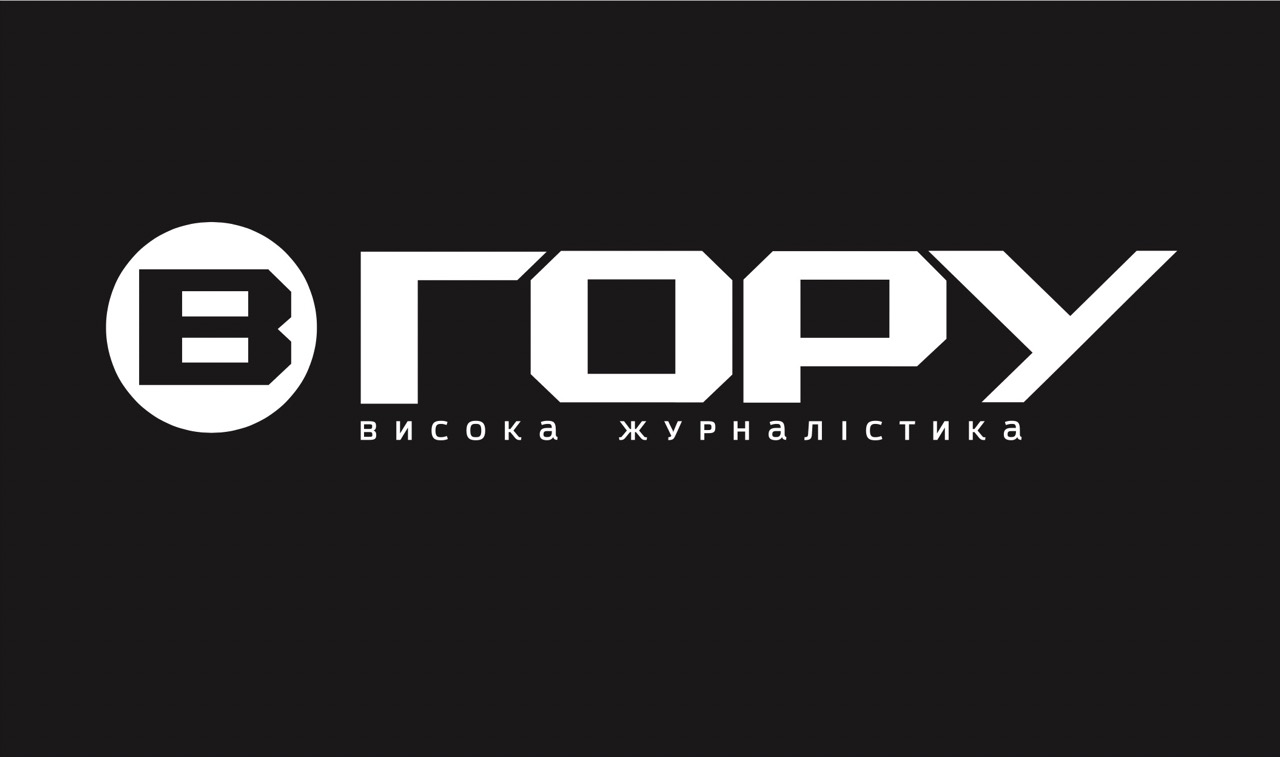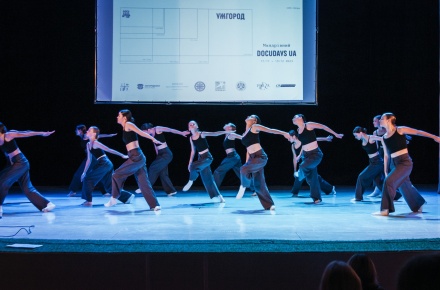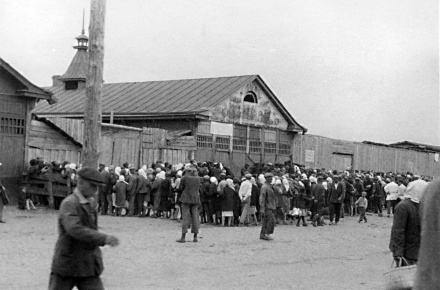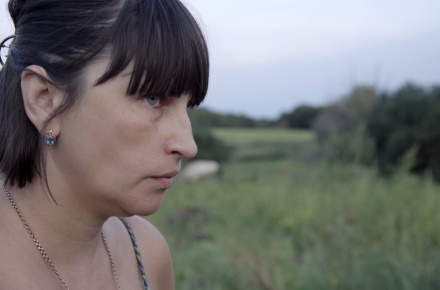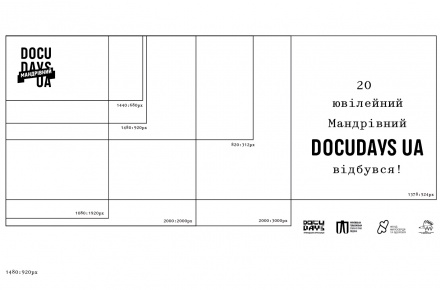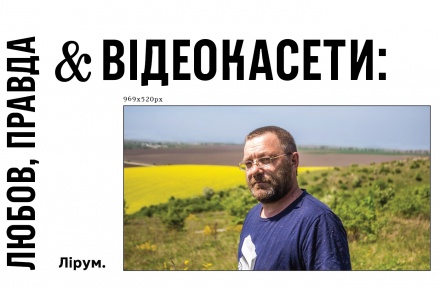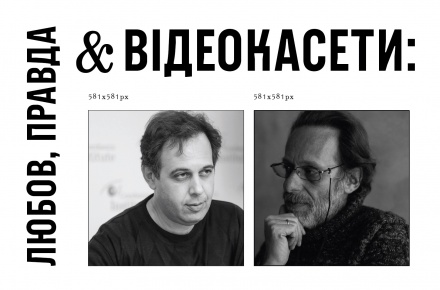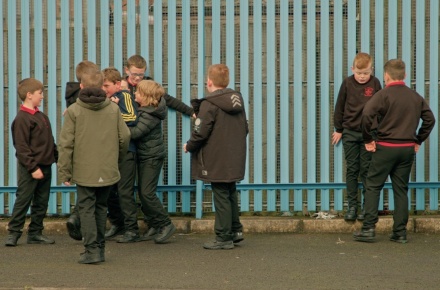“We are unbreakable”: The Travelling Docudays UA began in Kherson
“We are unbreakable”: The Travelling Docudays UA began in Kherson
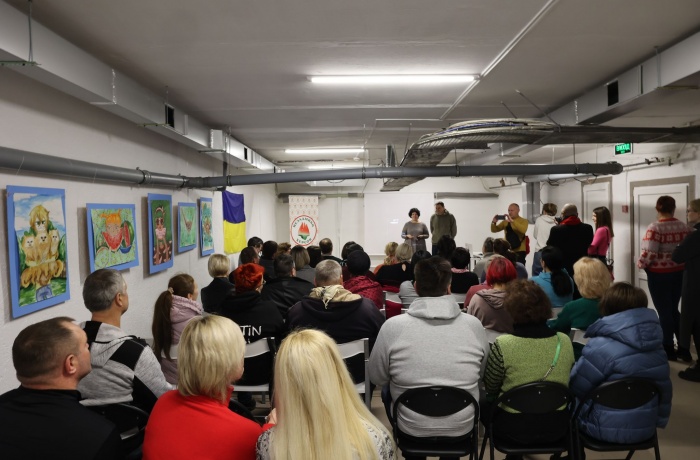
On December 10, the Travelling Docudays UA commenced in Kherson with the screening of Unconquered Kherson (directed by Ustyn Danchuk) by the Vhoru Media Platform. The film tells about the experiences of Kherson residents during the Russian occupation. This marked the first offline screening of a documentary film in the city since the full-scale invasion and subsequent de-occupation.
The documentary delves into the work of journalists who, from the onset of the russian invasion, documented events in the city, actively participating in rallies and protests. Alongside Kherson’s residents, they endured the occupation, rallies, and the city’s liberation. Unconquered Kherson features unique footage depicting the city’s life over the last year and a half.
Ilona Korotitsyna, director of the Vhoru Media Platform, journalists Iryna Ukhvarina and Yelyzaveta Zharkykh, and photographer Oleksandr Korniakov share their experiences of working under occupation in the film. The narrative begins with recollections of the war’s onset when the city united, and people volunteered and donated blood for the defenders, including journalist Yelyzaveta Zharkykh.
Even before the full-scale war, the Vhoru Media Platform reported on the pro-russian activities of local politicians, such as Volodymyr Saldo and Kyrylo Stremousov, who openly collaborated with the occupiers post-invasion. The Vhoru Media Platform also took legal action against Stremousov for attacks and assaults on journalists. Following the seizure of Kherson, the media team had to close their social media profiles, remove the sign from the editorial office, and delete the office address from Google Maps. Despite the risks, they chose to remain in the city, renting a large house for the entire team, and continued their work.
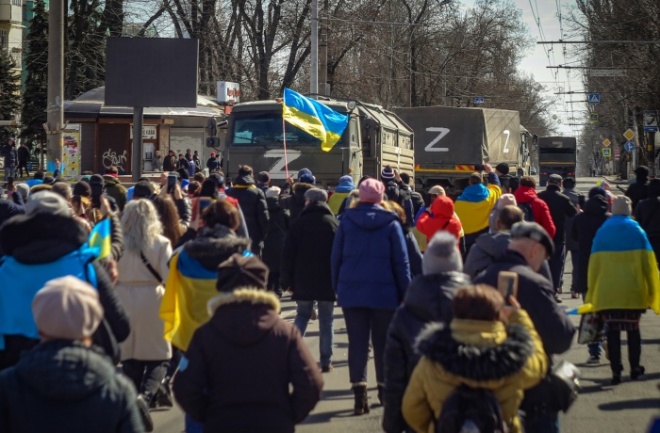
A still from Unconquered Kherson
In early March, anti-russian rallies ignited in Kherson. Repressive actions targeted activists, with people wearing symbols being seized on the streets. While some of the Vhoru team departed, not everyone decided to leave. Mobile phone service was often cut off in the city, making it impossible to contact the team enduring the occupation. By mid-June, only Iryna Ukhvarina and Oleksandr Korniakov remained in the city.
Ilona Korotitsyna received information that Oleksandr was wanted by the russians, prompting him to go into hiding for a month and a half. Iryna Ukhvarina helped him by providing food and clothing since it was dangerous for Oleksandr to return home. Ukhvarina left Kherson in mid-August, and Korniakov’s photos later became the foundation for a photo exhibition portraying Ukrainian heroism, titled ‘Unconquered Kherson’, which travelled to 16 cities across the country.
On November 11, 2022, the Armed Forces of Ukraine liberated Kherson. There were many blue and yellow flags, embraces, and tears of joy. However, the city soon faced intense and relentless shelling.
The film concludes with an epilogue about the summer of 2023 when the Russians destroyed the dam of the Kakhovka hydroelectric power station, causing flooding in Kherson. A Kherson resident near a flooded flat building declares, “We are unbreakable. We were bombed, we were drowned, we were frozen, we were kept without electricity. And we are resilient.” The film ends with a scene of a piano on the street, played by a woman standing. Fatigued hands and bulging veins accompany her rendition of Joe Dassin’s ‘If You Were Not There’ on the weathered piano.
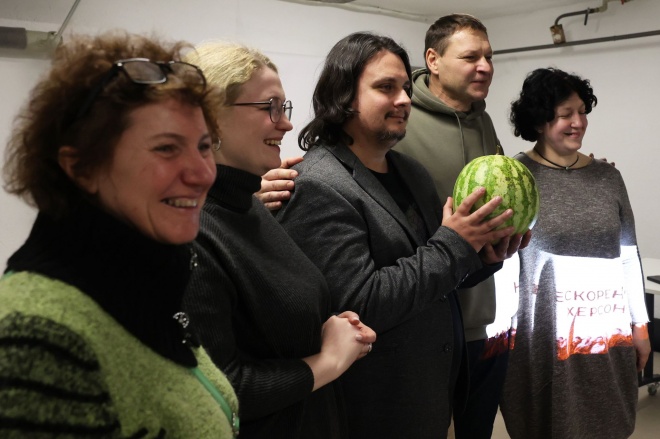
Travelling Docudays UA in Kherson. Photo by Oleksandr Korniakov
“We have all matured. This experience made us stronger,” reflects Ilona Korotitsyna in the film.
After the screening of Unconquered Kherson, the audience shared their impressions of the film and their thoughts about the city that endured almost nine months of Russian occupation.
Natalia Shatilova, acting head of the Kherson regional organization of the Red Cross Society, emphasized the importance of documenting resistance to the Russian military that controlled the city:
“While watching Unconquered Kherson, I believe everyone recalled their own story – the first encounter with evil, the rescue of people. Every person, like every town, village, and township, had their own resistance. This is the value of the film. In the summer of 2022, many people claimed that Kherson was a ghost town, that there were no people here, and no one would return. It was crucial to show that this wasn’t true. Many locals chose to keep their social media profiles open so that everyone understood: Kherson persists, and it is very much alive.”
The screenwriter and director of Unconquered Kherson, Ustyn Danchuk, shared his thoughts on the importance of this live screening in Kherson:
"We travelled all over the country with this film, and today, my dream has finally come true – to present it to the people of Kherson. Because this is a film primarily for them, portraying the work of journalists in the city, the indomitable spirit of Kherson residents, and all Ukrainians. However, this particular screening was the most stirring for us, and we awaited it with some fear. You can easily recognize falsity, embellishment, and excessive drama. I hope you have seen and felt that our film is devoid of them – we’ve simply shared what we lived through together with you.”
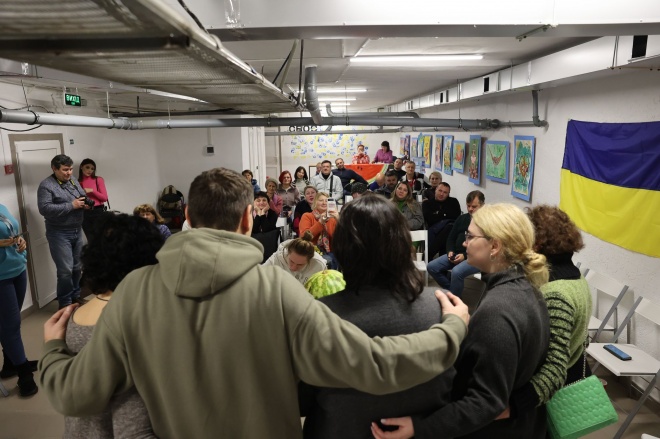
Travelling Docudays UA in Kherson. Photo by Oleksandr Korniakov
Yelyzaveta Zharkykh, a journalist with the Vhoru Media Platform, remarked, “Unconquered Kherson tells the story of several journalists. However, it seemed to us that their stories intersect with those of everyone who was in Kherson – those who left, who endured the occupation, and whose children or husbands went to war. This is a film about civil society and its struggle. It’s about how people can come together and how such unity fosters growth.”
Yelyzaveta also shared her future plans: to create a similar series of films about Kakhovka, Oleshky, Hola Prystan, and Nova Kakhovka, documenting the stories of people who survived the occupation.
Volodymyr Kliutsevskyi, Deputy Head of the Kherson Regional State Administration, spoke about his own experiences and impressions of the onset of the full-scale invasion, stating, “During the protests, we were not afraid that we would be shot because we were together and confident that we would prevail.”
Svitlana Kulinich, an obstetrician at a perinatal centre in Kherson, also joined the discussion, saying, “In Kherson, we all lived through the city’s history together. In the film, I observed the initial fears and enthusiasm, the overwhelming despair during the occupation, and the joyful feelings when we were liberated. It was a sort of wild surge of emotions and a sense that you’re never alone, that someone will always be there to help. We continue to carry this feeling with us.”
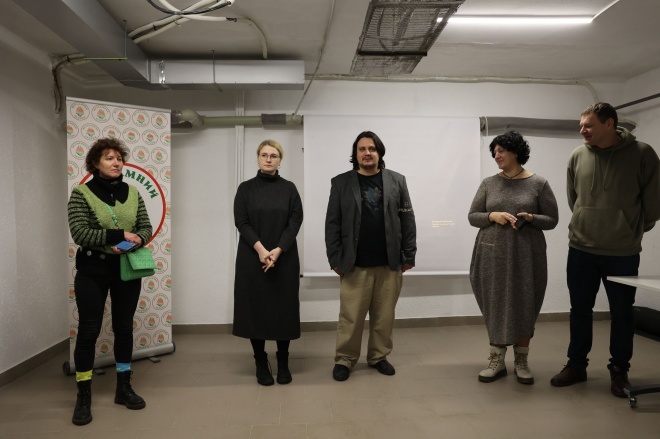
Travelling Docudays UA in Kherson. Photo by Oleksandr Korniakov
Dmytro Mutsenko, director of the Kherson Regional Centre for Social Services, reflected, “People asked, why don't you leave, don't you understand what can happen? We were well aware of the potential risks, and we were prepared, implementing security measures. After the de-occupation and up to now, many people have deliberately chosen to remain in the city to preserve this territory and support others. In the film, I also witnessed this – how some people shoulder everything themselves.”
Oleksandr Korniakov, a photographer with the Vhoru Media Platform, whose photos were featured in the ‘Unconquered Kherson’ exhibition during last year’s Travelling Docudays UA, also shared his thoughts on the screening: “I’ve attended several screenings of this film in other cities, but I’ve never witnessed such laughter and joy as I did today. I am happy that it happened in Kherson.”
Author: Iryna Bulanenko, Vhoru Media Platform.
Main photo: Oleksandr Korniakov, photojournalist with the Vhoru Media Platform.
The 20th Travelling Docudays UA is supported by the Embassy of Sweden in Ukraine, the Embassy of Switzerland in Ukraine, and the US Embassy in Ukraine. Opinions, conclusions, or recommendations do not necessarily reflect the views of the governments, charities, or companies of these countries. The content of this publication is the sole responsibility of its authors.


